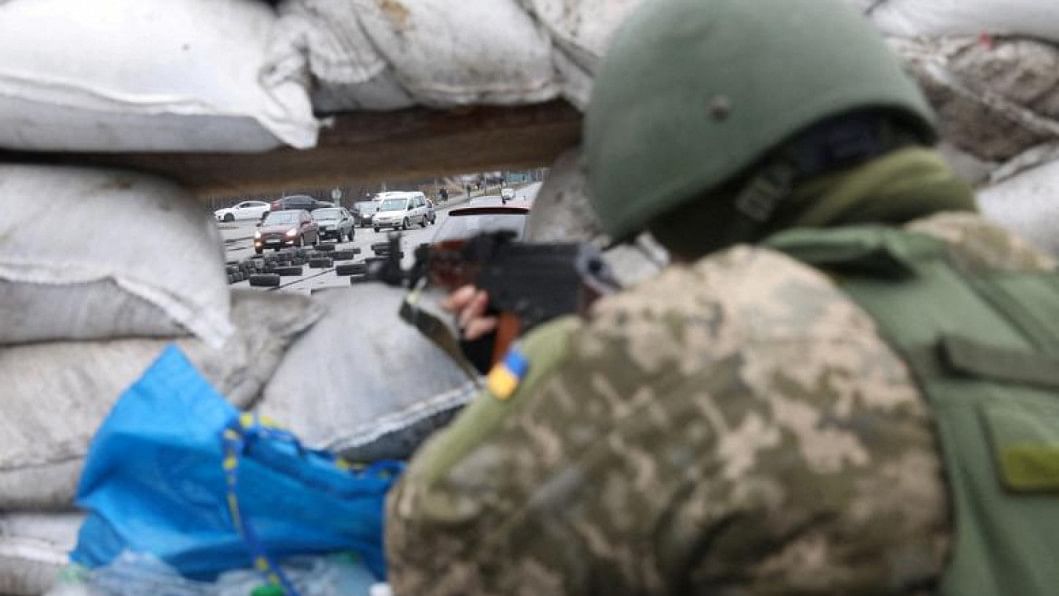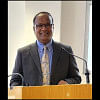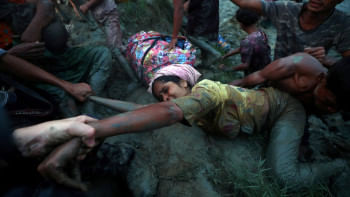Can OIC negotiate peace in Ukraine?

Let's assess the situation in Ukraine now. The marketing of war is in full gear. Both Russia and the US are travelling across the globe lobbying for support. People are feeling the devastating effect of the war. Inflationary pressure is increasing. Prices of essential commodities have increased. Economic growth has stagnated. Unemployment is on the rise. Food and fuel shortages are hurting everyone. The poor across the globe are the worst-hit.
There is no urgency for peace. Both parties are preparing for the long haul. The United Nations is not in a position to contain the war. During the Cuban Missile Crisis and the Korean War, the UN and the Nonaligned Nations played a significant role in brokering peace. The war in Ukraine has underscored the structural weaknesses of the UN. The Nonaligned Nations are dormant. The world does not have a viable counterforce that can stop the war. The regional, political or economic groups (e.g. Asean, COMESA, GCC, Mercosur, Arab League and African Union) have not been able to influence the course of war.
The war has undermined the role of the European Union and the G20. Nato, under the US leadership, has overtaken the EU. The G20 summit in November may not produce any resolution. Continuation of the war is likely to instigate demonstrations against the governments in various countries. Already, we have seen such demonstrations in Belgium, Britain, Germany, and Italy. Human sufferings have forced people to take to the streets. This is likely to increase, and "street power" could put pressure for peace as it did during the Vietnam War. However, this is not a desirable alternative to rely upon.
The Organisation of Islamic Cooperation (OIC) can offer a viable platform and play a historic role. The OIC is the second largest organisation, after the UN, covering four continents. Fifty-seven nations representing 1.5 billion people have a geopolitical advantage in negotiating peace. The organisation has a moral obligation to extend their hand for a compelling cause. Demarketing war should be their agenda. Here are four suggestions for the organisation to do so.
Identify a common goal: The OIC's primary goal would be to stop the war and establish peace. I would like to believe that most OIC members would support this. A sizable number of the OIC nations have good relationships with both Moscow and Washington, DC. Recently, Turkey has brokered a grain deal. The Indonesian president visited both Moscow and Kyiv underscoring the humanitarian issues. Working with good intentions are likely to produce results.
Maintain collective neutrality: To be a fair negotiator, the OIC member countries must not take sides. Integrity of the negotiator and objectivity are essential for success. The power of collective neutrality of 57 nations can be a significant force in brokering peace. One-fourth of the OIC countries are facing food shortage or starvation due to war. A united collective front is crucial for their survival.
Find a BATNA: Honestly speaking, situations like this do not offer clear-cut, win-win solutions. What we look for is a BATNA – Best Alternative to a Negotiation Agreement. The warring parties may not be happy with a BATNA, but they are likely to accept a mutually beneficial agreement. The 38th parallel in Korea is an example in this regard.
Think long term: Stopping the current war is essential, and the OIC must act on it. However, the organisation will also have to think long-term about global peace and security. The UN needs a serious structural reform. Poorer nations must have some say in global affairs.
Historically, superpower negotiation has been a complicated process. Hegemonic rivalry has always dominated issues. Yet, it never had a blinding effect. Superpowers have been able to produce mutually beneficial agreements. The OIC should identify and focus on those possible agreements. Their united front should prevail, both within and outside the UN. They should approach regional integration organisations, interfaith groups and NGOs working for peace for support. Hope the superpowers will listen to the call for peace for the betterment of all.
Dr Abu NM Waheeduzzaman is a professor of marketing and international business at Texas A&M University-Corpus Christi, US.


 For all latest news, follow The Daily Star's Google News channel.
For all latest news, follow The Daily Star's Google News channel. 






Comments